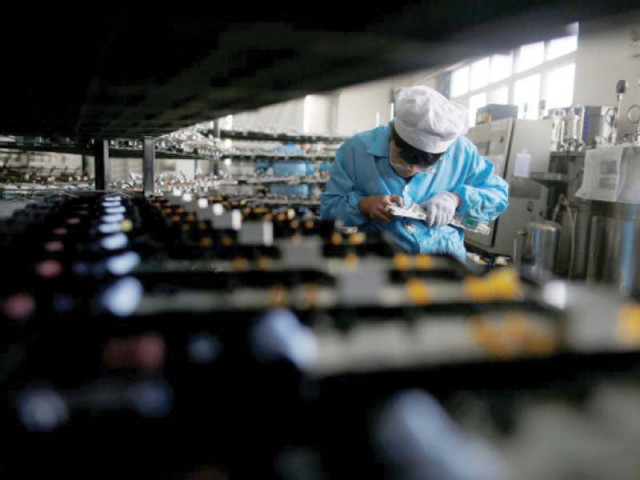Karachi industries starved of gas
Seek prime minister’s intervention, fear delay in export consignments

Industrialists of Karachi have lamented that export-oriented businesses are being starved of gas as there is little to no gas pressure for 16 hours a day.
Factories had been facing interruption of gas supply for nearly 16 hours a day for the last two months, they said.
In a letter written to Prime Minister Imran Khan on Saturday, former SITE Association of Industry president Jawed Bilwani stated that low pressure and suspension of gas supply to export industries of Karachi was worsening with every passing day and the problem required urgent attention of the government.
Citing that Karachi’s industry contributed over 50% to the total exports of Pakistan, Bilwani said it was ironic that factories of the city were being deprived of gas, which was the most essential raw material for the production of a large range of commodities.
“Due to zero gas pressure, the textile sector’s woes are deepening day by day and export consignments are at risk of delay,” he said. “This can jeopardise future export orders as well.”
While it is believed that the government has exempted export sectors from gas load-shedding and it is being supplied to their captive power plants for industrial use, the factories of Karachi are experiencing widespread interruption in gas supply.
“Moreover, several exporters of the city have RLNG connections only (no domestic gas connections) and they are paying $15.67 per mmbtu,” he said. “Even with this hefty tariff, gas is available for just eight hours a day.”
He recalled meeting Sui Southern Gas Company (SSGC) managing director, who informed him that the problem of gas supply and pressure would worsen in the coming days.
Furthermore, Pakistan State Oil (PSO) has discontinued furnace oil and diesel supply to the exporters of Karachi while Pakistan Refinery has temporarily shut down production because of operational and storage constraints.
“Due to this, international buyers of Pakistani merchandise have become sceptical of their orders being sent on time,” Bilwani pointed out.
They are constantly inquiring about the timeframe for goods deliveries in the wake of gas crisis. In addition to that, they are demanding shipments by air, “which is 800% more expensive than sea freight”.
“We appeal to Prime Minister Imran Khan to direct the Ministry of Energy (Petroleum Division) to ensure round-the-clock gas supply with adequate pressure to the export industries of Karachi,” he concluded.
Union of Small and Medium Enterprises (UNISAME) President Zulfikar Thaver told The Express Tribune that many small and medium enterprises (SMEs) were in turmoil due to loss of production following interruption in gas supply.
“Take the example of dyeing units, a massive quantity of fabrics is damaged when gas disappears suddenly and boilers stop working,” he said.
Thaver lamented that a huge chunk of industrial base of the port city was suffering and the units were recording losses because their expenses remained the same regardless of the availability of gas.
He recommended substituting electricity and gas with solar and biogas energy and requested the government to act as fast as possible to resolve the issue.
According to him, it is about time before Pakistan begins producing energy through solar and biogas modes.
Alpha Beta Core CEO Khurram Schehzad called ill-planning and delayed decision-making as the prime reasons behind the gas crisis.
Pakistan Businesses Forum Vice President Ahmad Jawad expressed concern that natural gas reserves of Pakistan were depleting at the rate of 9% per year.
“During the past two years, the gas reserves have depleted 18%,” he regretted. “On the flip side, demand for the commodity has increased manifold.”
He noted that the government had halted supply of liquefied natural gas (LNG) to the domestic consumers. However, households were allotted top priority in gas supply, according to the load management plan.
On the other hand, he stressed that the country needed to spend Rs8-10 billion to import LNG cargo and supply it to the export industry. To achieve that, timely orders should be placed, he stressed.
According to him, the Ministry of Energy could better decide the number of LNG cargoes to be ordered for the industry.
Published in The Express Tribune, January 2nd, 2022.
Like Business on Facebook, follow @TribuneBiz on Twitter to stay informed and join in the conversation.


















COMMENTS
Comments are moderated and generally will be posted if they are on-topic and not abusive.
For more information, please see our Comments FAQ